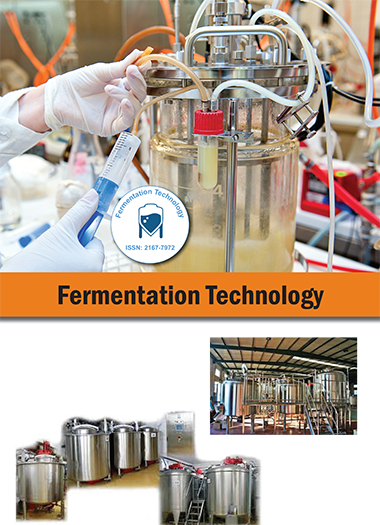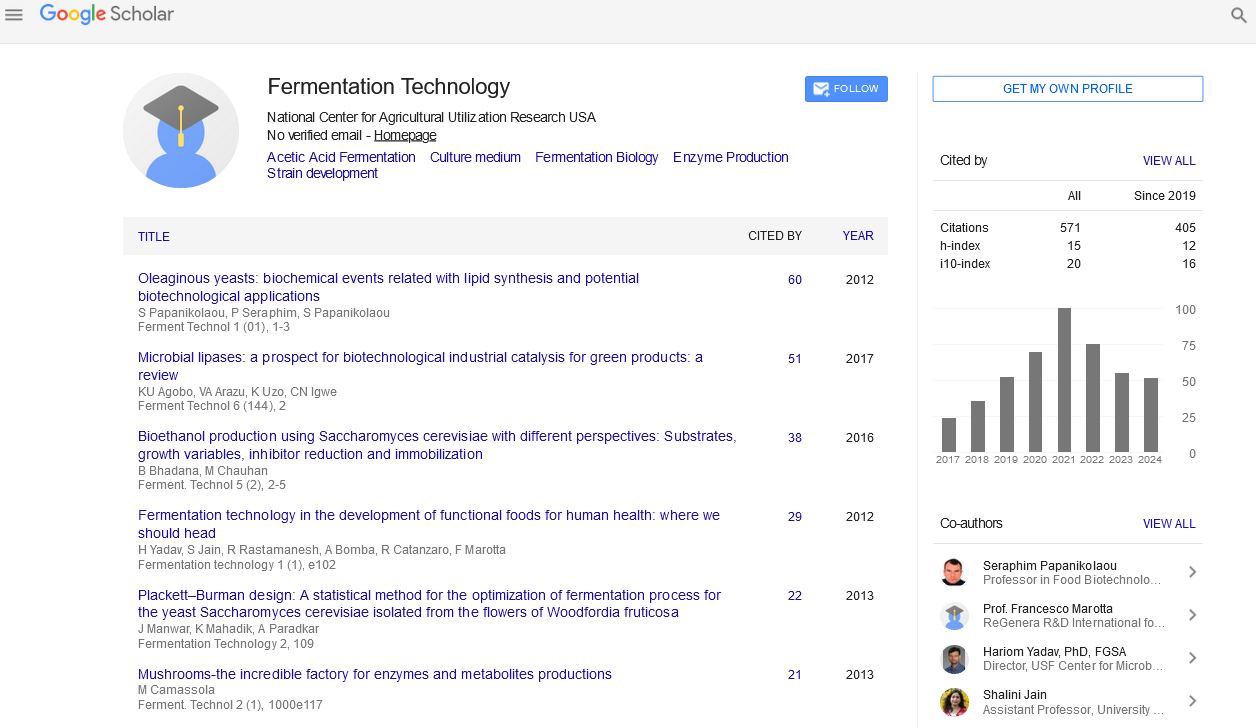Indexed In
- Open J Gate
- Genamics JournalSeek
- Access to Global Online Research in Agriculture (AGORA)
- RefSeek
- Hamdard University
- EBSCO A-Z
- OCLC- WorldCat
- Publons
Useful Links
Share This Page
Journal Flyer

Open Access Journals
- Agri and Aquaculture
- Biochemistry
- Bioinformatics & Systems Biology
- Business & Management
- Chemistry
- Clinical Sciences
- Engineering
- Food & Nutrition
- General Science
- Genetics & Molecular Biology
- Immunology & Microbiology
- Medical Sciences
- Neuroscience & Psychology
- Nursing & Health Care
- Pharmaceutical Sciences
Antimicrobial activity and properties of Enterococcus faecium strains isolated from kefir
World Congress on Beneficial Microbes: Food, Pharma, Aqua & Beverages Industry
August 25-27, 2015 Valencia, Spain
Erdogan Cakir, Merih Kivanc and Tulay Yigit
Anadolu University, Turkey
Posters-Accepted Abstracts: Ferment Technol
Abstract:
Kefir is a refreshing, naturally carbonated fermented milk beverage with a slightly acidic taste, yeasty flavour and creamy consistency. Beneficial bacteria and yeast, kefir contains minerals and essential amino acids that help the body with healing and maintenance functions. Bacteria of the genus Enterococcus are ubiquitous Gram-positive, catalase-negative cocci that often occur in large numbers in vegetables, plant materials and foods especially those of animal origin such as dairy products. Enterococci have been used in many different applications as starters or adjunct cultures and in foods they seem to have a major role in improving flavour development and quality of cheese. Enterococcus faecium isolated from kefir for isolation of Enterococci the diluted homogenates were placed on M-17 medium and azide agar medium was used aerobically. The plates were incubated at 37o C for 2-3 days. Carbohydrate fermentation tests were carried out using the API 50CHL kit according to the manufacturers instruction (BioMerieux, France). Ribotyping was performed with a RiboPrinter Microbial Characterization System (Qualicon Inc., Wilmington, DE) and the standard EcoRI DNA preparation kit as described in the manufacturers operations. Antagonistic activity screening was investigated by two methods. The agar spot test and well diffusion assay as described by Schillinger and LĂ?che (1989), Tagg et al. (1976) and Harris et al. (1989), respectively. The amount of produced lactic acid, hydrogen peroxide, proteolytic activity of the lactic acid bacteria was determined. The use of Enterococcus strains as starter cultures, co-cultures or protective cultures is becoming an important aspect that can lead to the production of safer food. However it will be beneficial to evaluate risk/benefit analysis for safety use.
Biography :
Erdogan Cakir is currently working as reseracher in Anadolu University, Turkey.
Email: ecakir@anadolu.edu.tr

